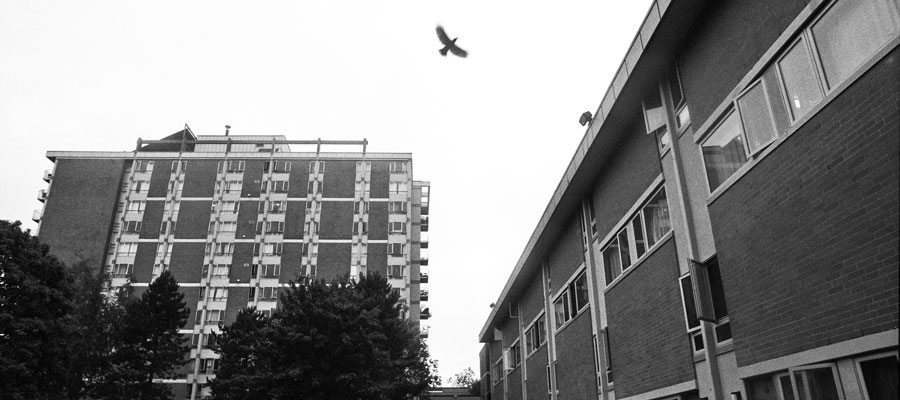The case for a progressive property tax

In 1993, then-Finance Minister Glen Clark tabled a controversial BC Budget, featuring a wide range of tax changes. A one-point increase in the provincial sales tax was the largest measure, tempered by the introduction of a refundable sales tax credit. Most of the budget measures increased taxes on the wealthy and corporations. Up went the top marginal income tax rates for the top 8% of British Columbians, as did the general corporate income tax rate.
Among the measures tabled was a progressive increase in provincial property taxes (officially called the “school tax” but already de-coupled from actual education expenditures). On top of regular property tax, the budget proposed a surtax with brackets (like income tax) of 0.5% on homes valued over $500,000, rising to 1% over $700,000, and 1.5% on value over $900,000. The budget reckoned this progressive property surtax would only apply to about 25-30,000 “high-valued single residential dwellings” in the province, or about 2.5% of the total housing stock.
Unfortunately, the property tax proposal triggered a political firestorm, and was pulled off the table due to concerns about the potential harm to seniors living on fixed incomes—the “property rich but cash poor”—who would not able to afford higher property taxes.
A progressive tax on all properties would raise substantial revenues in support of an ambitious affordable/social housing construction plan, while tackling growing wealth inequality.
In hindsight, the 1993 budget may well have been the most progressive tax shift in BC history. Stung by criticism of new taxes in general and the property tax in particular, the 1994 budget, tabled by a new Finance Minister, Elizabeth Cull, instead promised a three-year tax freeze. Until it lost power to the BC Liberals in 2001, the NDP government would never again attempt major reforms to the tax system.
More than two decades later, it is time to revisit the idea of progressive property taxation, in light of house price inflation that has fuelled a growing gap between homeowners and renters. Economists consider property taxes to be an efficient and effective form of taxation because people cannot move their property to another jurisdiction to avoid the tax. Property tax rates in Metro Vancouver are already low when compared to other Canadian cities.
Making the property tax progressive would be a step towards the progressive taxation of wealth (including financial assets), as recommended by French economist Thomas Piketty in Capital in the 21st Century. Progressive property taxes have precedents in Europe, including Denmark, Finland and Germany.
What would a progressive approach to property taxes look like in BC? Current practice is that property taxes are determined by the product of assessed housing value multiplied by a “mill rate” determined annually by municipal governments based on their expenditure needs. But the property tax rate itself is a flat percentage, unlike the income tax, with its multiple brackets.
The proposed surtax thresholds from the 1993 budget are from a different era. A modernized version proposed by SFU economist Rhys Kesselman calls for a property surtax of 0.5% on home values between $1 million and $1.5 million, 1% between $1.5 million and $2 million, and 1.5% between $2 million and $3 million, and 2% above $3 million. Kesselman’s proposal would allow homeowners to credit their previous year’s BC income tax against the surtax, thus aiming it squarely at non-resident owners and vacant properties.
Table: Annual property surtax based on Kesselman proposal
|
Home value |
Kesselman surtax |
| $500 thousand | $0 |
| $1 million | $0 |
| $1.25 million | $1,250 |
| $1.75 million | $5,000 |
| $2 million | $7,500 |
| $5 million | $62,500 |
This framework, however, could be more broadly aimed at taxing windfall gains from housing price escalation – these are more like lottery winnings than the proceeds of hard work. A progressive property tax on all properties, regardless of whether the owner resides in BC or not, would raise substantial revenues—about $1.7 billion per year—in support of an ambitious affordable/social housing construction plan, while tackling growing wealth inequality.
This is just one example, and many variations of this structure are possible: the threshold for the surtax need not start at $1 million of assessed value; there is no reason why brackets could not continue to increase above $3 million.
Implementation of this approach could occur through the provincial portion of the property tax, or alternatively it could be implemented at a regional or municipal level, if given legal authorization by the province. For example, only half of the property taxes collected by the City of Vancouver are for its own purposes, while 38% goes to the BC government, another 9% to Translink and 2% to Metro Vancouver regional government.
Progressive property taxation would bring benefits every year by making the property tax system more fair to renters, reducing wealth inequality and improving the overall equity of the tax system.
Another means of ensuring fairness would be to reform the current homeowner grant (HOG), which goes to all qualifying homeowners regardless of their income. The homeowner grant is costly to the provincial treasury – $814 million in 2014/15, representing about half of total provincial property tax revenues from homes. The homeowner grant currently provides a $570 reduction in provincial property taxes for properties under $1.2 million in market value, and is then phased out and eliminated for properties assessed at more than $1.31 million. The recent surge in Vancouver real estate prices pushed many new households over one or both thresholds. For seniors, there is an additional HOG amount, making the total grant $845.
A fairer approach would be to eliminate homeowner grants in favour of an income-tested credit/transfer program. Like the GST credit, Canada Child Benefit or Old Age Security, it could be designed to provide greater benefit to low-income households and then phase out gradually as income rises. Unlike the current HOG, renters would be included in this system, as they pay property taxes indirectly through their rent. (Sadly, the 1993 BC Budget also killed a “renters’ tax reduction”, an income tax credit for renters that used to be a complementary credit to the HOG).
BC already has multiple brackets for the Property Transfer Tax, but these only apply when a house is sold, and it’s an unpredictable revenue source. Progressive property taxation would bring benefits every year by making the property tax system more fair to renters, reducing wealth inequality and improving the overall equity of the tax system. Finally, it would raise substantial revenues in support of a much-needed major affordable housing build-out over the coming decades.
Topics: Housing & homelessness, Poverty, inequality & welfare, Taxes


